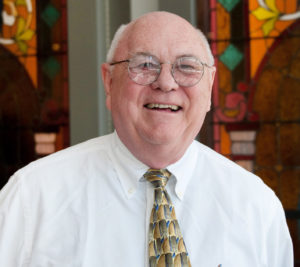
Readings:
Reading 1: Isaiah 55:1-3
Responsorial Psalm: Psalm 145:8-9, 15-16, 17-18
Reading 2: Romans 8:35, 37-39
Gospel: Matthew 14:13-21
GENEROSITY, ABUNDANCE, EXTRAVAGANCE
Not Counting Women and Children, the words in the last line of today’s Gospel, is the title of a book by theologian and storyteller Megan McKenna. What this line might mean, McKenna, proposes, is that the number Jesus fed in that deserted place on that evening was much, much larger than 5000 people, as we often think when we call this story “The Feeding of the 5000.” For every man, she suggests, there may have been five or six women and five or six children—fifteen or twenty thousand in all, perhaps—a huge, mind-boggling number! It is a number, it seems to me, that only hints at the generosity, extravagance, and abundance of the already-now future that Jesus embodies and preaches: the radical kinship that he calls the Reign of God.
Such generosity, extravagance, abundance are expressed as well in our first reading, the famous and beloved passage from Isaiah. Come one and all! It’s free! Clear, cool water! Grain to make fresh and fragrant bread! Cheering wine and nourishing milk! The responsorial psalm continues the theme: God answers all our needs, God satisfies the desire not only of humans but “of every living thing” — every animal, every plant, every microbe.
In another way, the extravagance and abundance in both the Gospel and the first reading are also expressed in Paul’s letter to the Romans. Not death, not life, no angel, no power, nothing that exists, no creature can separate us from the love of God — the God who is abundantly generous, even extravagant, toward every living thing, even toward everything else that exists.
With Romans, though, we see that the material generosity, abundance, and extravagance is also a metaphor, a figure, of the spiritual abundance and extravagance that our generous God has in store for us. It is only in our relationship and partnership with this extravagant God — the “everlasting covenant” that God has made with us — that God will satisfy us. It is in heeding God that we will delight in rich fare, listening to God that we will find true life. It is in opening up to “the love of God in Christ Jesus our Lord” that we will find protection from anguish, distress, hunger, exposure to the elements, danger, or violence. Come to the water! It’s free!
It is this generous extravagance and abundance of “the love of God in Christ Jesus our Lord” that we need to keep in mind in this trying, difficult, almost unbearable time in our lives. We are in that “deserted place” and it is “already late.” If you are like me, it’s not just the COVID-19 pandemic that is terrifying — and that is terrifying enough. It is the racism and hatred that has revealed itself, the shocking individualism that is prolonging the agony of these months, the painful call (for some of us — liberating for others!) to revise our history and our heroes, the dangerous disregard for science and real wisdom that is harming an entire generation. It is the disregard for human lives, especially Black lives today, that is making us pant with thirst. It is a refusal to see the harm we are causing to our planet, and to future generations of plants and animals and human children, that is making us faint with hunger. We desperately need the love of God in Jesus to feed us with hope, with compassion, with patience, with perseverance.
Jesus will do it; Jesus sees us in this deserted place and has the same compassion on us that he had for that teeming crowd on the other side of the lake. But he will have compassion not in some “miraculous” way without our help. He needs our heeding, our listening, our offering of our loaves and fishes, our partnership in his continuing mission.
It’s hard to believe, with Julian of Norwich, that “all will be well, and all manner of things will be well.” But our faith tells us that it will be because our faith is in an abundantly generous and extravagant God, embodied in Jesus. Not back to the old normal, though. With our help, with our loaves and fishes, with a renewed commitment to the dignity of one another and to the integrity of creation, Jesus will lead us through this death into new life. New life—not back to the old life. Resurrection, not resuscitation. Changes in the way we see our sisters and brothers. Changes in the way we see our planet. Changes in the way we see our history. Changes in the way we live our lives. Life in real abundance.
A popular song in Italy during the dark days of the lockdown there was “Rinascerò, Rinascerai” — I will be reborn, you will be reborn. This is our hope. This is the water, the grain, the wine, the milk, the protection, the extravagant abundance that our generous God offers us. Come to the water! It’s free!
Stephen Bevans, SVD
Louis J. Luzbetak, SVD Professor of Mission and Culture, Emeritus